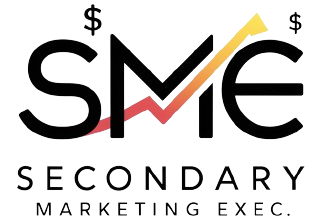As a medical professional, securing a mortgage can be a challenging process due to high student debt, limited savings, and unique income situations. However, physician mortgage loans offer a tailored solution designed specifically for doctors, dentists, and other healthcare professionals. These specialized loan programs provide more lenient qualification requirements and attractive benefits compared to conventional mortgages.
Who Qualifies for Physician Mortgage Loans?
Eligible Medical Professions for Physician Mortgages
Physician mortgage loans are available to a wide range of medical professionals, including:
- Medical Doctors (MD)
- Doctors of Osteopathic Medicine (DO)
- Dentists (DDS, DMD)
- Veterinarians (DVM)
- Residents and Fellows
- Physician Assistants (PA)
- Nurse Practitioners (NP)
- Certified Registered Nurse Anesthetists (CRNA)
- Doctors of Podiatric Medicine (DPM)
- Pharmacists
Some lenders may also extend eligibility to other high-income professionals such as attorneys, CPAs, and high-tech executives.
Income and Employment Requirements
One of the key advantages of physician mortgage loans is the ability to qualify based on future income potential. Lenders understand that many medical professionals, especially those just starting their careers, may have limited savings and high student debt. As a result, doctor mortgage requirements often allow borrowers to provide employment contracts or offer letters as proof of future income.
This means that even if you are still in residency or fellowship, you may be able to secure a physician mortgage loan based on your projected income once you begin practicing. Lenders typically require a minimum credit score and a clean credit history, but the exact requirements vary by lender.
Credit Score and Debt-to-Income Ratio Guidelines
While physician mortgage loans have more flexible qualification criteria compared to conventional mortgages, borrowers still need to meet certain credit and debt-to-income standards. Most lenders require a minimum credit score of 680-720, although some may accept scores as low as 650.
Physician mortgage programs also allow for higher debt-to-income ratios, often up to 50% or more. This is particularly beneficial for medical professionals with significant student loan debt, as lenders may exclude these payments from the debt-to-income calculation. However, it’s essential to ensure that your monthly mortgage payments and other debts remain manageable within your budget.
Property Types Allowed for Physician Mortgage Loans
Primary Residence Requirement
Physician mortgage loans are designed for borrowers who intend to use the property as their primary residence. This means that you must plan to live in the home for the majority of the year and cannot use it as an investment property or vacation home. Lenders may require you to occupy the property within 30-60 days of closing.
Single-Family Homes, Condos, and Townhouses
Most physician mortgage programs allow for the purchase of single-family homes, condominiums, and townhouses. Some lenders may also permit the financing of multi-unit properties, such as duplexes or triplexes, as long as the borrower occupies one of the units as their primary residence.
When considering a condo or townhouse purchase, it’s important to ensure that the property meets the lender’s guidelines for approval. This may include requirements related to the homeowners association’s financial stability, insurance coverage, and owner-occupancy ratio.
Restrictions on Investment Properties and Second Homes
While physician mortgage loans offer numerous benefits for primary residence purchases, they typically do not extend to investment properties or second homes. Lenders focus on helping medical professionals secure financing for their main living space rather than facilitating real estate investments.
If you are interested in purchasing an investment property or vacation home, you may need to explore conventional financing options or seek out specialized investment property loans. It’s essential to work with a knowledgeable mortgage professional who can guide you through the various financing solutions available based on your specific goals and circumstances.
Key Benefits of Physician Mortgage Loans
Low or No Down Payment Options
One of the most significant advantages of physician mortgage loans is the ability to secure financing with little to no down payment. Many lenders offer up to 100% financing for loan amounts up to $1 million or more, depending on the borrower’s qualifications and the specific program guidelines.
This feature is particularly appealing for medical professionals who may have limited savings due to the high costs of education and training. By requiring minimal upfront investment, physician mortgage loans enable borrowers to purchase a home without depleting their cash reserves.
No Private Mortgage Insurance Requirement
Typically, conventional loans with less than 20% down payment require borrowers to pay for private mortgage insurance (PMI). This additional monthly expense protects the lender in case of default but can add hundreds of dollars to the borrower’s monthly payment.
Physician mortgage loans, however, often waive the PMI requirement, even with low or no down payment. This benefit can result in significant savings over the life of the loan, making homeownership more affordable for medical professionals.
Flexible Debt-to-Income Ratios
As mentioned earlier, physician mortgage programs allow for higher debt-to-income ratios compared to conventional loans. While traditional mortgages typically cap debt-to-income ratios at 43%, physician loans may allow ratios up to 50% or higher.
This flexibility is crucial for medical professionals who may have substantial student loan debt. By excluding or reducing the impact of student loan payments on the debt-to-income calculation, physician mortgage loans make it easier for borrowers to qualify for financing based on their income potential.
Higher Loan Limits
Physician mortgage loans often feature higher loan limits compared to conventional mortgages, accommodating the unique financial needs of medical professionals. Some lenders offer financing up to $1 million or more without requiring a jumbo loan, which typically comes with stricter qualification requirements and higher interest rates.
These elevated loan limits enable physicians to purchase homes in more expensive markets or to secure a larger, more suitable property for their growing families. It’s essential to carefully assess your budget and long-term financial goals when considering a high-value mortgage to ensure that the monthly payments remain manageable.
How Physician Mortgages Differ from Conventional Loans
Comparing Qualification Requirements
| Loan Feature | Physician Mortgage Loans | Conventional Loans |
|---|---|---|
| Down Payment | 0-10% (up to 100% financing available) | Typically 5-20% |
| Private Mortgage Insurance (PMI) | Not required, even with low down payment | Required for loans with less than 20% down payment |
| Debt-to-Income Ratio | Higher ratios allowed (up to 50% or more) | Generally capped at 43% |
| Future Income Consideration | Employment contracts or offer letters accepted | Typically based on current income only |
| Student Loan Debt | Often excluded or reduced in debt-to-income calculation | Included in debt-to-income calculation |
Interest Rates and Loan Terms
Interest rates for physician mortgage loans may be slightly higher than those for conventional mortgages, as lenders assume more risk by offering more flexible qualification requirements. However, the difference in rates is often minimal, and the benefits of securing financing with less stringent criteria can outweigh the slightly higher borrowing costs.
Physician mortgage loans typically offer both fixed-rate and adjustable-rate options, with terms ranging from 10 to 30 years. Some lenders may also provide unique features such as interest-only periods or the ability to lock in a rate before starting a new job.
Mortgage Insurance and Down Payment
As previously discussed, one of the most significant differences between physician mortgage loans and conventional loans is the absence of private mortgage insurance (PMI) requirements. While conventional loans with less than 20% down payment necessitate PMI, physician mortgages waive this requirement, resulting in lower monthly payments.
Additionally, physician mortgage loans offer the opportunity to purchase a home with little to no down payment, whereas conventional loans typically require a minimum of 5% down. This flexibility allows medical professionals to become homeowners without having to save for a substantial down payment, which can be challenging given the high costs of education and training.
Finding the Right Physician Mortgage Lender
Banks and Credit Unions Offering Physician Loans
When searching for a physician mortgage lender, it’s essential to explore options from various banks and credit unions that specialize in serving the unique needs of medical professionals. Some well-known lenders offering physician mortgage loans include:
- KeyBank: Offers the Laurel Road physician mortgage program, with up to 100% financing and no PMI requirement.
- Bank of America: Provides doctor mortgage loans with low down payment options and flexible qualification criteria.
- Huntington Bank: Features a specialized physician mortgage program with competitive rates and personalized service.
- Citizens Bank: Offers tailored financing solutions for medical professionals, including low down payment options and no PMI requirement.
- SunTrust (now Truist): Provides physician mortgage loans with up to 100% financing and flexible underwriting guidelines.
In addition to these national lenders, many regional banks and local credit unions also offer physician mortgage programs. It’s essential to research and compare options from multiple lenders to find the best fit for your specific needs and circumstances.
Comparing Lender Rates, Fees, and Terms
When evaluating physician mortgage lenders, it’s crucial to compare interest rates, fees, and loan terms to ensure that you are getting the most competitive and cost-effective financing solution. Keep in mind that while one lender may offer a slightly lower interest rate, they may charge higher origination fees or closing costs, which can impact the overall cost of the loan.
Some key factors to consider when comparing lender offers include:
- Interest Rates: Pay attention to both the initial rate and the annual percentage rate (APR), which includes fees and other costs.
- Origination Fees: Some lenders charge a percentage of the loan amount as an origination fee, while others may offer reduced or waived fees for physician borrowers.
- Closing Costs: Estimate the total closing costs, including appraisal fees, title insurance, and other expenses, to determine the upfront investment required.
- Loan Terms: Consider the available loan terms, such as fixed-rate or adjustable-rate options, and the repayment period (e.g., 15, 20, or 30 years).
- Prepayment Penalties: Check whether the lender charges a penalty for paying off the loan early, as this could limit your flexibility in the future.
Working with Specialized Physician Loan Officers
When pursuing a physician mortgage loan, it’s beneficial to work with a loan officer who specializes in serving the unique needs of medical professionals. These experienced professionals have a deep understanding of the challenges and opportunities faced by physicians and can provide tailored guidance throughout the financing process.
Specialized physician loan officers can help you:
- Navigate the Loan Application Process: They can guide you through the required documentation, such as employment contracts, income verification, and asset statements, to ensure a smooth and efficient application experience.
- Identify the Best Loan Options: Based on your specific financial situation and goals, they can recommend the most suitable loan programs and lenders to meet your needs.
- Provide Personalized Service: Physician loan officers often provide dedicated support and are available to answer your questions and address concerns throughout the financing journey.
- Offer Insight and Expertise: With their knowledge of the physician mortgage landscape, they can provide valuable insights and advice to help you make informed decisions about your home financing.
By working with a specialized physician loan officer, you can benefit from their expertise and ensure that you secure the most favorable financing terms for your unique circumstances.
In conclusion, physician mortgage loans offer a valuable financing solution for medical professionals looking to purchase a home. With more lenient qualification requirements, low or no down payment options, and the absence of PMI, these specialized loan programs make homeownership more accessible for doctors, dentists, and other healthcare professionals. By researching and comparing lender options, and working with a knowledgeable physician loan officer, you can find the best financing solution to meet your needs and achieve your homeownership goals.
See also:
- What Is A Purchase-Money Mortgage? – Definition, Types, Benefits
- People Most Likely Need to Take Out a Mortgage When They Have…
- For which buyer would a lender most likely approve a $200,000 mortgage? – Guide
- A Balloon Payment Mortgage: Best Choice for Borrowers Who Are…
- What is a Wrap Around Mortgage: Everything You Need To Know








Leave a Reply